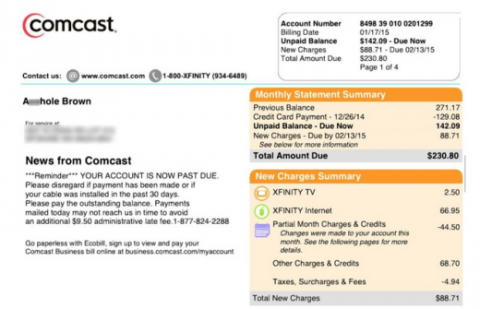By Stephen C. Webster Wednesday, December 1st, 2010 — 1:08 pm Internet providers will not be subjected to so-called “Net neutrality” rules and may experiment with tiered, usage-based pricing and “network management” practices, according to new rules being considered by the Federal Communications Commission this month. Advocates of Net neutrality had hoped the regulatory agency would mandate Internet service providers treat all traffic equally: one of the Web's founding principles. Instead, the FCC's Internet regulations adopts many proposals by search and telecom giants Google and Verizon, with the caveat that wireless telephone providers not block competing voice applications. In a speech, FCC Chairman Julius Genachowski specified that the FCC would permit ISPs to charge heavy bandwidth users even more, creating a tiered pricing structure. ISPs would also be able to charge fees to businesses serving large quantities of data. The announcement is a victory for Comcast, the nation's largest cable Internet provider, which recently forced a bandwidth toll upon Netflix partner Level 3. The company called Comcast's move “extortion” but agreed to their conditions to prevent any service interruptions. “With this action, Comcast demonstrates the risk of a 'closed' Internet, where a retail broadband Internet access provider decides whether and how their subscribers interact with content,” the company's chief legal officer said in a media advisory. Comcast insisted the move had nothing to do with Net neutrality. The company has been leading the charge among ISPs to establish tiered-based pricing systems. Comcast admitted in 2008 that it uses “network management” practices to speed up some data transfers and slow down others, and users of peer-to-peer file sharing services have complained to the FCC that the provider has blocked their transfers altogether. Tiered pricing structures are already in place for many communications providers like AT&T and Cricket, which offer wireless broadband services. Verizon said it would implement similar pricing structures in the coming months. The FCC's rules would permit the practice on wired networks as well. Both Comcast and Time Warner, two of America's largest wired broadband providers, have already experimented with the practice. A Texas-based trial run of Time Warner's bandwidth caps saw users paying nearly $30 a month for 768 kilobits-per-second access, with a limit of 5 gigabytes per month and a $1 fee for each gigabyte they went over. One step-up on their pricing tier had users paying nearly $55 for true broadband speeds of 15 megabits-per-second, with a limit of 40 gigabytes per month. Public advocates say the move may ultimately force heavy Internet users to consume less bandwidth and stay tied to television subscriptions over cable and satellite. Comcast, which is in the process of merging with NBC-Universal, stands to benefit tremendously from the arrangement. The American Cable Association's (ACA) claimed the merger “will send monthly cable bills higher by billions of dollars over the next decade.” Major corporations have long sought a way to charge and earn more for bandwidth, ever since Enron attempted to create a bandwidth trading market where space in data pipes would be traded as a commodity like oil or gold. On wired Internet, which is expected to dramatically decrease in relevance in the coming years as fourth-generation wireless networks proliferate, a “public Internet” would be protected from bandwidth throttling. Companies, however, would be permitted to experiment with establishing super-tiers for preferred traffic, but must justify why individual services should be separated from the public Internet. The FCC would additionally require broadband providers to disclose their network management practices. The chairman's proposal lines up closely with a bill proposed by Rep. Henry Waxman (D-CA), who campaigned on pledges to institute Net neutrality rules. His bill, however, completely undermined those principles, but Democrats scrapped the legislation in Sept. The commission was expected to vote on the measure during it's Dec. 21st meeting. http://www.rawstory.com/rs/2010/12/fcc-puts-net-neutrality-dec-agenda/?utm_sourc… added by: treewolf39





























